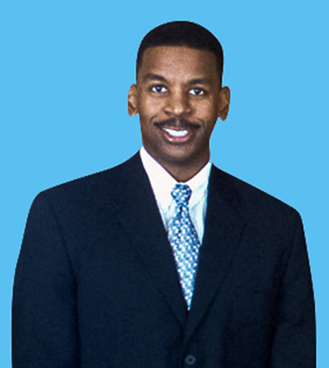
About Bryant Lusk:
Bryant Lusk is a military veteran and author who grew up on the notorious south side of Chicago. Despite the ever-present challenges of gang violence and poverty, he became a successful Safety Inspector and Quality Control Specialist with the United States Government.
Bryant spent four years in the United States Air Force, gaining valuable experience and learning the true meaning of pride and empowerment. His desire to serve and protect others led him to write the initial installment of his Share the Health book series. With a determination to prevent and treat debilitating conditions, Bryant’s books have helped many.
With this latest offering, Bryant shifts the focus to naturally treating osteoporosis and osteopenia, a musculoskeletal disease that inflicts back pain and bone fractures on millions of women and men worldwide. By identifying the best formulations of vitamins and minerals required to treat osteoporosis and osteopenia naturally, his approach to vitamin therapy is both affordable and effective. He includes a natural strategy to support liver health, which is a critical component for building stronger bones and improving overall health.
In his free time, Bryant enjoys cultural encounters and watching classic films. He particularly enjoys spending quality time with friends and loved ones, and of course, carrying out research and writing on the things that go toward helping millions of people to improve their health and quality of life.
What inspires you to write?
After growing up in an extremely challenging environment, I endeavor to impact the lives of others in a positive and meaningful way.
Tell us about your writing process.
I actively seek subject matter that I deem to be helpful and impactful. I then become a captive audience of one, as I allow the story to reveal itself and every detail that it has to offer.
What advice would you give other writers?
Self-publishers be aware there are sharks in the water seeking to squeeze every penny that they can get out of you as you perfect your craft. The scam artists are becoming stealthier by the year.
One rule of thumb is if it sounds too good to be true, run. For most new writers, resources are finite. You have to develop a method for determining where to invest your money, time, and effort for the greatest return.
Additionally, if you are not serious about your work, do not publish it. Be willing to pay for writing software, such as Grammarly. Having your work proofread and copy-edited at least twice is a must. People who do not take their writing seriously and publish anyway make all self-publishers look bad.
How did you decide how to publish your books?
Research! Research! Research! With a little trial-and-error.
I had a bad experience with a vanity-press when self-publishing was just emerging. It was my first book called "It's Not The Cans." The vanity-press bilked me out of a few thousand dollars, but I learned a lot along the way. It was the first book I had ever written. I was very proud of what I was trying to accomplish, which was to share information to help others improve their health.
My most recent release is more polished at half the cost of developing my first book. I was also able to budget more effectively after my first experience. I felt that I gained enough experience to avoid the sharks and to find enough credible resources to self-publish a decent product.
What do you think about the future of book publishing?
I think "traditional" publishing houses will have to adapt to the wave of self-publishers and the technology available to them or go the way of Blockbuster Video.
Currently, "traditional" publishers are still seeking writers with large platforms and a ready-made consumer base. Bookstores are starting to accept the reality that self-published work can be as professionally written as work from "traditional" publishing houses.
I proudly state that my work is self-published, regardless of the stigma that bookstore chains and "traditional" publishers heaped upon that phrase.
Thanks to the growing market and evolving resources, "small" individuals with "big" voices will continue to carve out larger swaths of real estate in mainstream literature.
"Traditional" publishers and mega-bookstore chains will either evolve with this new reality or go out of business. The days of choosing writers based solely on the size of their "platform" will be the demise of publishers who simply refuse to adapt.
What genres do you write?: Health, History, Science Fiction
What formats are your books in?: Both eBook and Print
Website(s)
Bryant Lusk Home Page Link
Link To Bryant Lusk Page On Amazon
Your Social Media Links
Goodreads
Facebook
LinkedIn
All information in this post is presented “as is” supplied by the author. We don’t edit to allow you the reader to hear the author in their own voice.
